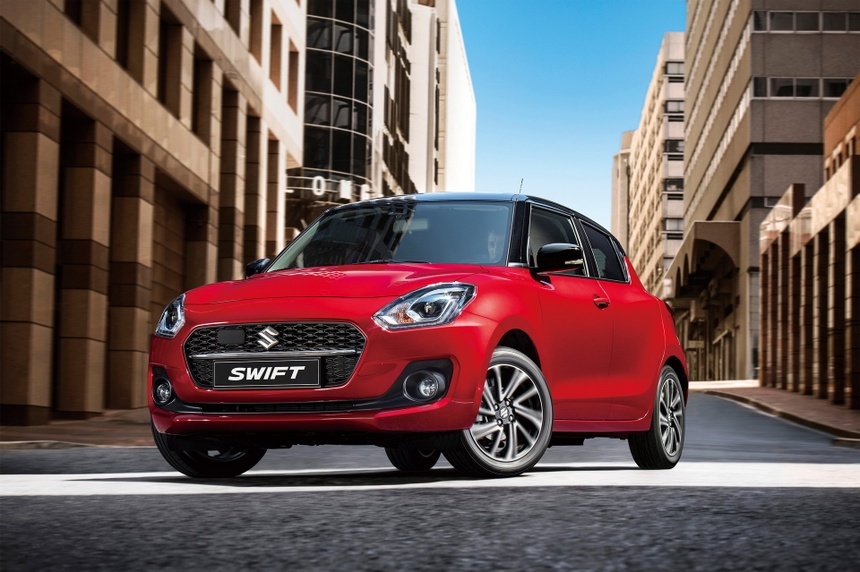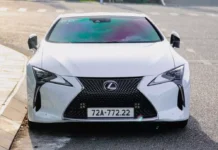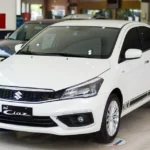
|
Suzuki Vietnam has removed the Suzuki Swift from its passenger car lineup on its homepage. Previously, the Suzuki website in Vietnam also quietly removed the Suzuki Ciaz, a move that is believed to be equivalent to temporarily discontinuing the sale of this model.
Suzuki Vietnam has not released any information regarding the future of the Suzuki Swift. According to some sources, a new version of this model will be launched in Vietnam soon.
Vietnamese customers currently have only a few Suzuki car options, including the Suzuki XL7, Suzuki XL7 Hybrid, Suzuki Ertiga Hybrid, and Suzuki Jimny.
Before being removed from the passenger car lineup in the Vietnamese market, the Suzuki Ciaz sold only 8 units in the first half of 2024.
The Suzuki Swift fared slightly better, with 225 units sold since the beginning of the year, including 217 units recorded in the first half of 2024. Suzuki Swift sales peaked at 98 units in January before declining in subsequent months.
| Suzuki Swift sales have been continuously declining since the beginning of the year | ||||||||
| Suzuki Swift sales in Vietnam for the first seven months (Data: VAMA) | ||||||||
| Label | January | February | March | April | May | June | July | |
| cars | 98 | 34 | 32 | 23 | 21 | 9 | 8 |
The appeal of the B-segment hatchback is gradually decreasing. At the end of June, the Toyota Yaris also quietly disappeared from the product catalog on the Toyota Vietnam website. This model had zero sales in the period from March to May and ended the first half of 2024 with only 8 units sold to Vietnamese customers.
Currently, the B-segment hatchback market in Vietnam only includes the Mazda2 Sport (VND 527-544 million) and the recently launched BYD Dolphin, priced at VND 659 million.
|
Suzuki Ciaz and Suzuki Swift have disappeared from the company’s website in Vietnam. |
The future of the Suzuki Swift in Vietnam is likely to be affected by Suzuki’s decision to adjust its production plans in Thailand.
At the beginning of June, according to the Bangkok Post, Suzuki will soon stop producing cars and trucks at its factory in Thailand to focus its resources on electric and hybrid vehicles at another location.
Suzuki stated that it will maintain its business in Thailand through car imports, including electric and hybrid vehicles, from other factories in the Southeast Asian region, as well as from Japan and India.
Suzuki also stated that it has considered optimizing its production sites globally to promote carbon neutrality and electrification. Accordingly, Suzuki will close its factory in Thailand by the end of 2025.
The production address in Thailand used to be the source of supply for Vietnamese customers of the Suzuki Ciaz and Suzuki Swift, two names that have been temporarily discontinued.
At the end of the first seven months, Suzuki’s passenger car group recorded sales of 3,437 units. The gasoline-powered variant of the Suzuki XL7 was the best-selling model, with sales of 1,800 units.
Great Books to Read on the Go
The Auto channel brings you a selection of great books with fascinating topics. On those journeys with your car, there are often moments of rest and relaxation, and books can be an interesting companion.
The Yaris Disappearance: An Unexpected Exit from Toyota Vietnam’s Lineup
The automotive industry in Vietnam is witnessing a potential shift as the Toyota Yaris, a beloved hatchback, might be facing its end. With the previous discontinuation of the Ford Ecosport and Mitsubishi Mirage, the Yaris could be the next casualty in the Vietnamese market, marking a transition point for car enthusiasts and consumers alike.













































